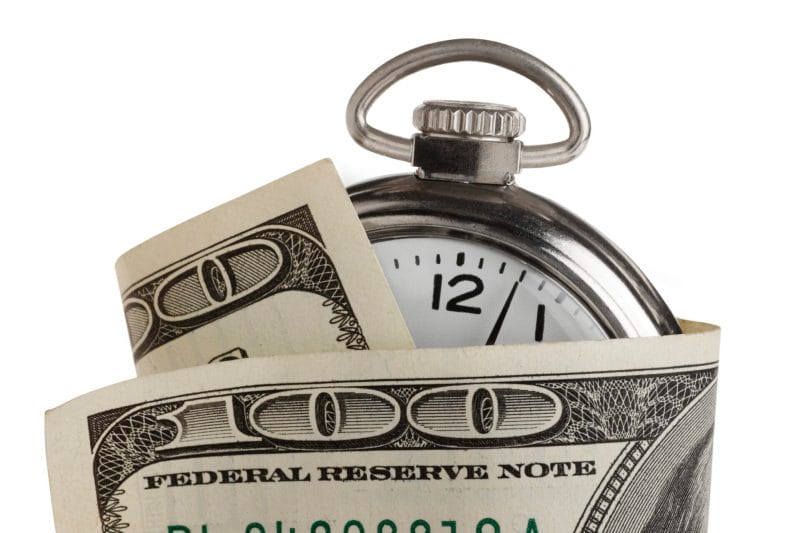“Everyone makes mistakes. How you handle a mistake is how you’re judged.”
Words of wisdom from Mike Bloomfield, CEO of Tekie Geek, an MSP in Staten Island, New York, who stresses the importance of accountability and transparency when addressing mistakes.

The worst thing you can do is sweep it under the rug or pass the buck, agrees Chad Kempt, CEO of Fast Computers, an MSP in Ontario, Canada. “That’s a dirty, dirty hole to climb down, and I think you end up exposing yourself more, whether it’s litigation or just bad press, bad word of mouth—the opposite of what we all want.”
Whatever You Do, Don’t React – Respond
Taking ownership of the issue, notifying the customer quickly, and making it right are all critical steps, but first, Kempt cautions, “have all the facts on your side.” He reviews all related tickets, calls, and other information to determine how to address the issue. “We don’t get into the weeds really deep at this point. What we want to do is figure out a path forward.”
That’s because at first glance, a minor issue may seem worse than it really is, or it may seem minor when in fact it’s a crisis. “The last thing you want to do is get on that call and then get blindsided with a bunch of information you weren’t aware of, because that’s just going to make you look even worse,” he advises.
Do a detailed post-mortem after the issue is resolved, Kempt says, examining your standard operating procedures to see if a step was missed or a process is broken.
“One of the things that I recognized early on was that if I as a leader wasn’t creating a process that was allowing people to be successful, then the problem belonged to me,” says Juan Fernandez, a former MSP, well-known channel veteran, and now channel chief with SuperOps.ai. “I needed to fix that and empower others to make changes to the process.” He recommends having the tech who made the error take ownership of the new or updated process and then teach the whole team.
Create A Culture Of Ownership
Bloomfield, too, uses mistakes as a learning experience. “I work very hard to tell my guys, if something happens, don’t push the blame to someone. Just be honest. I do let them know, ‘I’m never going get mad at you. I’m not going to start yelling. We’re going to talk through it.’”

“If I’m an MSP and I have a technician who makes a mistake, I want them to let me know about it right away,” says Don Crawley, IT customer service specialist and author of The Compassionate Geek. “I don’t mean to excuse bad behavior, but certainly if there’s a problem, the most important thing is to have communication between all of the parties involved so that you can understand what happened and prevent it from happening in the future.”
Still, there are times you may have to fire someone who’s not willing to learn from their mistakes. “If they don’t want to be part of the process, don’t care what you’re doing, that’s a bad hire, because that’s a toxicity in your environment,” says Fernandez. “If there’s nothing I can do to help them, then the only thing I can do is help them out.”
Does Love Mean Never Having To Say You’re Sorry?
What are customer expectations if you screw up, and is a simple apology enough?
“If it’s a sincere apology, it probably will go a long way,” says Bloomfield. “I don’t think I’ve ever given a gift for an apology, but if we make a mistake during an installation or someone felt that something wasn’t handled the way it should and they were billed, we’ll send the credit memo.”
“Everybody wants a freebie,” Crawley says, “but I’m not certain that every mistake is worthy of it. It depends on the nature of the mistake and the severity of the problem.”

If it’s a minor issue, Kempt has the tech apprise the customer and offer an apology. “When it’s more serious or when there’s something you can’t quickly correct,” says Kempt, “then either some of my management team or myself, depending on the client and the relationship, will call.”
The goal is to preserve the customer relationship, Crawley says. “So just as in a marriage,” he notes, “there are times where you need to show up with chocolate and roses . . . [T]here’s other times where a simple, ‘Hey, I’m really sorry, I screwed this up, I’m not going to let it happen again’ is adequate.”
Crawley also acknowledges that an attorney may have a different response regarding an apology. That’s why Fernandez recommends being very deliberate and concise about deliverables in both your statement of work and MSA.
Even When It’s Not Your Fault, It Is
Sometimes a mistake is more of a misunderstanding, but Fernandez still recommends taking responsibility. For instance, his MSP installed Wi-Fi throughout a medical building. However, when some physicians moved their workspace near the x-ray room where there was a lead wall, the customer came in hot about why the Wi-Fi wasn’t working. While that part of the building was outside of the scope of work, Fernandez didn’t argue the fact.
Says Fernandez, “I chose to say, ‘Look, I’m sorry, but we maybe didn’t understand this was going to be a future requirement and that’s our fault. One of the ways that we’ll move forward meaningfully in the future is we’ll stop and ask that question.’”
The installation of an additional access point quickly solved the problem. “That was an important customer to us, and they ended up . . . being one of our largest customers,” Fernandez says, “and it was just because of the way we were willing to work with them and understand their needs and . . . just be a true partner.”
Can Every Mistake Be Forgiven?
Nobody’s happy when a mistake happens, Kempt acknowledges, “but at the end of the day, it’s how you move forward with it.”
For him, it’s about being reasonable. For every resolution presented to a customer, he asks himself, “Would I be happy if this was presented to me? If the answer is yes, then no matter what the client says, I at least know that I put my best foot forward and did what I thought was right.”












